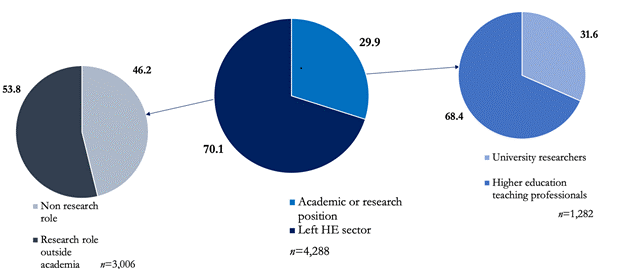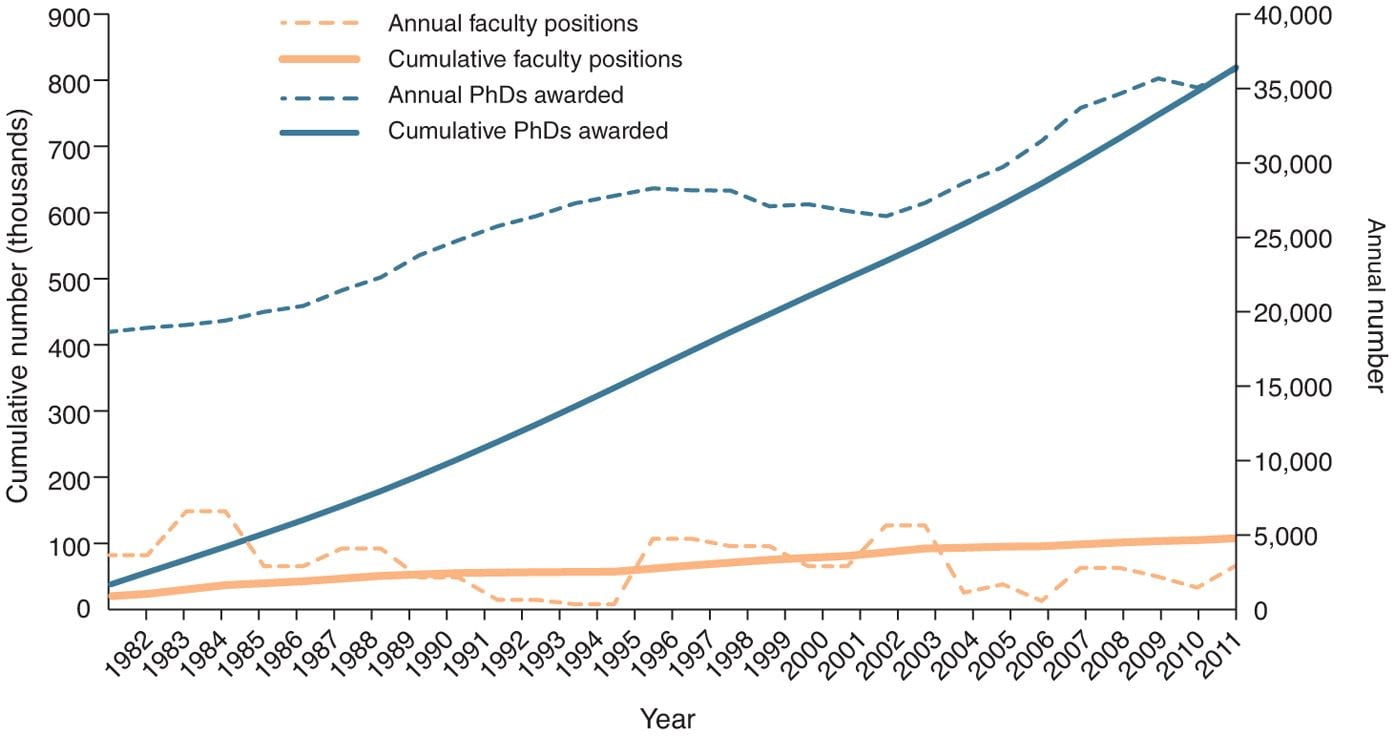What do UK PhD graduates do? An updated look.
By uczjsdd, on 16 April 2020

Figure: UK PhD destinations 3.5 years after graduation, taken from Dr Sally Hancock’s Hepi blog.
If you’re a UCL PhD student or member of research staff I’m sure you know lots of PhD graduates. At UCL you’re surrounded by them. So of course you know what PhDs do after they graduate, right? Well, not necessarily. Because if your sample consists largely of academic colleagues, it will be heavily skewed towards PhDs who’ve stayed within academia.
Most PhDs we work with at UCL Careers are aware there are options beyond academia, but they often feel the ‘normal’, the ‘expected’, or the ‘logical’ path is to carry on in academic research. But again and again, the stats show us this is far from normal.
A recent look at the career outcomes of PhD graduates comes from the work of Dr Sally Hancock, a Lecturer at the University of York. She investigated what 5,000 UK PhDs who graduated in 2008/9 and 2010/11 were doing 3.5 years after graduation. And as her graph above shows, 70% had already left academic research. Yes, that’s right – the majority of PhDs had left academia only a couple of years after graduating.
We can assume that of those 29.9% of PhDs in Dr Hancock’s sample who were still within academia 3.5 years after graduation (68.4% said they were university researchers, and 31.6% were Higher education Teaching Professionals) many will be on temporary post-doctoral researcher or teaching fellow contracts. And we know from previous studies, like the Royal Society’s 2010 look at STEM PhD destinations, that it’s likely not all of them will still be within academia in another few years.
So what does all this mean for you? Well, if you want to progress within academia you shouldn’t assume it will happen automatically. Get strategic, build networks, and take tips from those who are already succeeding. Look especially for advice amongst your contemporaries, as more progressed academics will have graduated into a very different academic environment. The graph below, taken from Schillebeeckx et al’s 2014 Nature Biotechnology article looking at data from the US, demonstrates just how much things have changed. It shows that over the past few decades, the number of PhDs awarded has risen at a far faster rate than the number of permanent academic jobs available, increasing the amount of competition for said jobs.
 Figure taken from Schillebeeckx et al’s 2014 Nature Biotechnology article analysing data from the US.
Figure taken from Schillebeeckx et al’s 2014 Nature Biotechnology article analysing data from the US.
And if you’re considering leaving academia? Well, go easy on yourself, because moving on to something new is the norm, not the exception. If it still doesn’t feel that way, seek out the stories and company of people who’ve already made the move. We’ve interviewed a few of them for you in our career case studies of PhD grads, and you can use platforms like the UCL alumni mentoring network or LinkedIn to find more.
And whether you’re considering staying or leaving, the UCL Careers Researcher Programme is here to help. You can access one-to-one appointments and our workshop schedule covering academic and non-academic employability skills, as well as job vacancies targeted at researchers, through MyUCLCareers, and you can read more details about our offering on our website. We are currently delivering our programme online, so please check out our summer schedule of webinars and online employer events here.
You can read Dr Sally Hancock’s full article here.
 Close
Close

